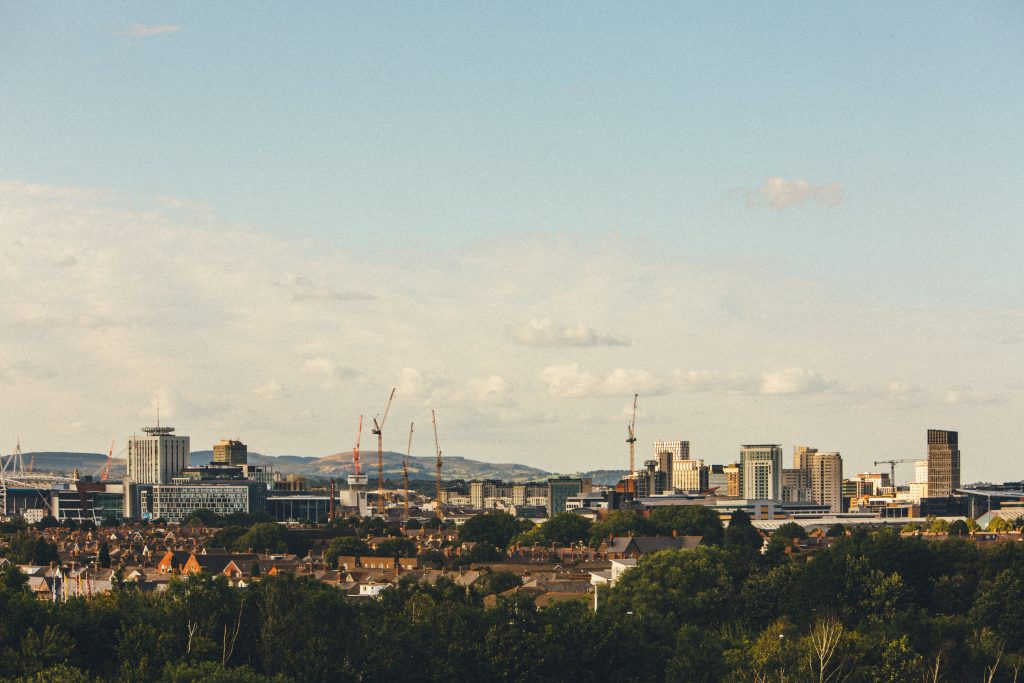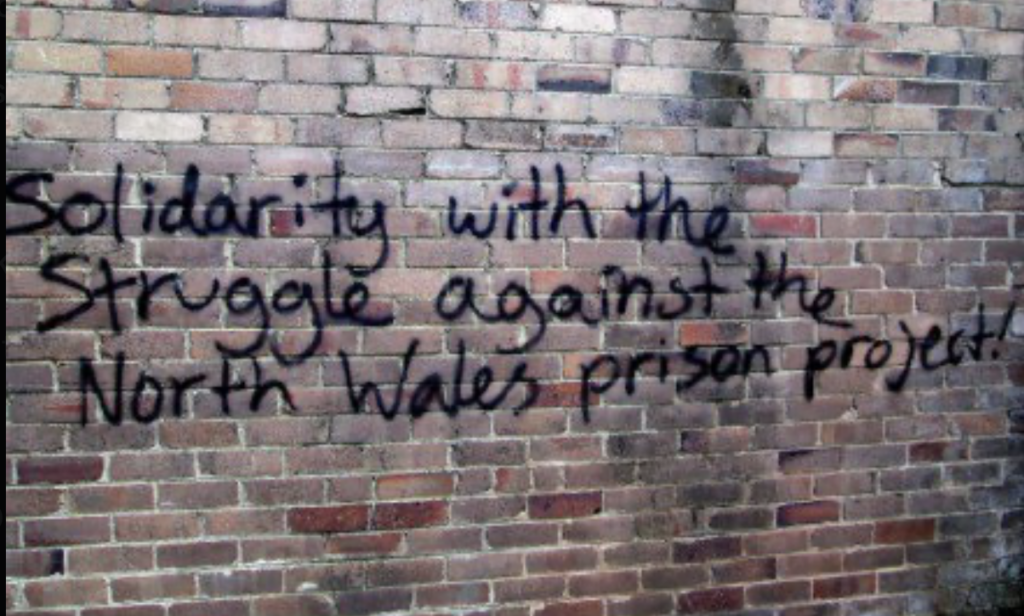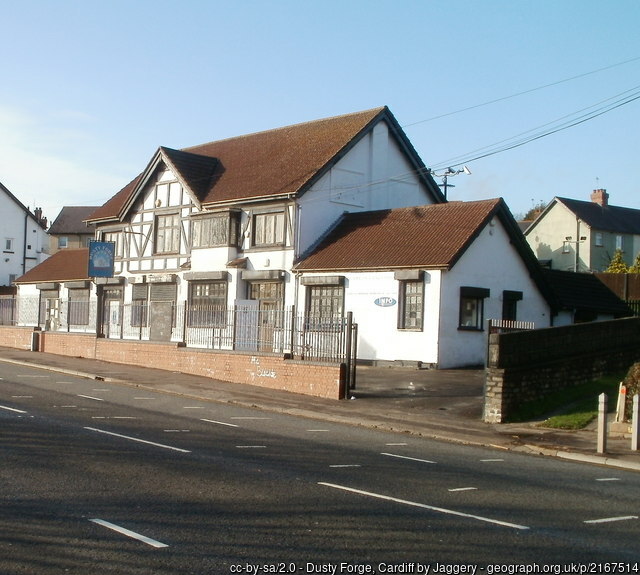Andy Regan offers a personal reflection on his feelings about the climate crisis and argues for a pragmatic way to save the planet.
Last week, the Mirror published a front cover depicting a high street in York knee high in water. Inside, it contained further photoshopped images under the heading ‘vanishing UK’ – a stark warning of what will happen if we get it wrong on climate change. Of what will, in fact, happen if things continue largely as they are.
Climate change scares the absolute shit out of me. It is highly plausible indeed that I will live long enough to see parts of the city I live in disappear under the sea. I’ve seen those post-climate change maps of Cardiff. My house isn’t on them.
It’s also possible that I’ll live long enough to see the society that has given me, personally, a pretty good life tear itself apart in a battle for access to diminishing resources. The world my children grow old in might be pretty scary. First world problems replaced by end of the world problems.
‘The world my children grow old in might be pretty scary.
I believe life will have to fundamentally change to avoid this. We’ll have to just straight up stop doing things that we like.
For me, in my place of significant privilege, there are a few obvious things that I could just crop out of my life entirely. I’ll just pick one: compact discs and vinyl records. I’ve often referred to my record collection as ‘my life’s work’. I’m attached to it. But we don’t need to emit the carbon to produce records, ship them around the world, light and heat the shops we sell them in, and everything else.
I’ve thought this for years, but of course over this weekend I went to a shop and bought some records. The main reason I do this now is because I want musicians I like to be able to earn a living, so I buy pieces of plastic containing their music. Doing so makes me happy. And then I mostly listen to it on my phone.
It’s irrational. I can’t intellectually justify the fact that I continue to do it. Am I going to stop? Probably not.
You will have your own examples.
I’m writing this shortly after an IWA roundtable on renewable energy, where two participants had a slightly spicy exchange sharing differing perspectives on what we might call ‘community engagement’.
One said (and I’m paraphrasing, as we held it under Chatham House rules) that if we tell people their lives need to fundamentally change to stop the climate crisis then we will scare them off. They won’t engage in the changes they need to make to their lives, and they will resent the macro-level changes that the government might impose at a societal level.
Innovative. Informed. Independent.
Your support can help us make Wales better.
I think that’s correct.
Another participant, clearly frustrated, responded that if people don’t fundamentally change how they live in a dramatic way, then then all the most frightening predictions about climate change will come true.
I think that’s also correct.
A few years ago, I worked for Ofgem, the energy regulator, and I brought some senior colleagues to Wales to meet ‘key stakeholders’, as the saying goes in the wonderful world of policy. One of the visits we made was to a flat which coincidentally was just around the corner from where I live, and which is therefore also not on those post-climate maps.
In that home lived a young, single mother with a small child, probably aged 2 or 3. The walls of her child’s bedroom were caked with black mould from damp. They had a prepayment meter. She was on a very low income and struggling to top it up. She’d been getting some support from Warm Wales’ energy advisors, and she was excited to tell us how helpful it had been.
The idea was for my colleague to hear about the value of advice, and see what some pretty crappy metering arrangements looked like in real life.
‘We need to approach decarbonisation mostly at a systemic level. We do it by being clever. By making the net zero pathway the path of least resistance.
I still pass that woman in the street sometimes. Or at least I think it’s her. She does a slight double take – like she maybe recognises me, but can’t place me. ‘Thanks for being my case study.’
If we’re going to decarbonise Wales, western society, and the world, then that woman is going to have to decarbonise her home. She’s going to have to, at least for a moment, stop thinking about whether to buy food or top up her meter, and think about how she decarbonises both her heating and her eating.
I don’t know if we get her to do that by scaring the shit out of her. By telling her that she’s going to have to give up quite a lot of the stuff that she enjoys, the things she looks forward to in the breaks she (hopefully) gets from working and childcare.
I think we do it by understanding why she’s doing the ‘wrong’ thing today. Why does she use a carbon heavy heating system? Maybe because it was there already. Why does she turn it up higher than she can afford? Maybe because her flat is full of damp and she doesn’t want her kid having respiratory problems. Why might she not manage to ‘map her personal net zero pathway’ and take steps to achieve it? Maybe because her life – as far as I could tell – was giving her enough to deal with.
Robust debate and agenda-setting research.
Support Wales’ leading independent think tank.
I’ve got to know a whole cast of characters around where I live, many of whom give the vibe that they too have things in their lives shouting louder at them than climate change. We’re a Deprived Area – it’s official.
‘If we want to save the planet, it has to be this planet. A planet where a significant number of our fellow citizens don’t have the time, the means or the motivation to carbon-optimise their life.
All of those people have to decarbonise their lives. Every single one of them.
So I think we need to approach this mostly at a systemic level. We do it by being clever. By making the net zero pathway the path of least resistance. Decarbonised by default. Making the ‘right’ thing the easiest and least scary thing. Big changes that don’t feel like big changes. Boiling the frog on a hydrogen hob.
In an energy system sense, we should aim to have as much decarbonisation as possible taking place on the grid side of the meter, where it can be done at scale. We shouldn’t pin too much on people micro-managing their consumption for the rest of their lives.
If everyone *felt* the need to decarbonise as much as I (and perhaps you – reading this?) do then maybe we’d feel less alone, more hopeful. So I’m saying all this, not because I want to let people who think or care less about climate change off the hook, but because I think the ‘make it easy’ route simply has the best chance of success.
If we want to save the planet, it has to be this planet. A planet where a significant number of our fellow citizens don’t have the time, the means or the motivation to carbon-optimise their life. Leading with the idea that life in a climate-safe world will be hard and miserable risks pushing significant numbers of them, politically, in the direction of denialism and inaction.
The moral blacks and whites of the climate crisis don’t translate quite so neatly into practical steps. We can’t all go and live sustainably and self-sufficiently in the countryside, because there isn’t enough countryside for everyone. We absolutely need to dramatically rethink our economy, but let’s not act like people consult the economic model before they pop to the supermarket.
We don’t have time to convert a majority of the population into people with deep, intrinsic motivations to fight climate change. We might just have time to figure out how to get everyone to do the right thing automatically. We might just have the ingenuity to make it easy to save the planet.
All articles published on the welsh agenda are subject to IWA’s disclaimer.





